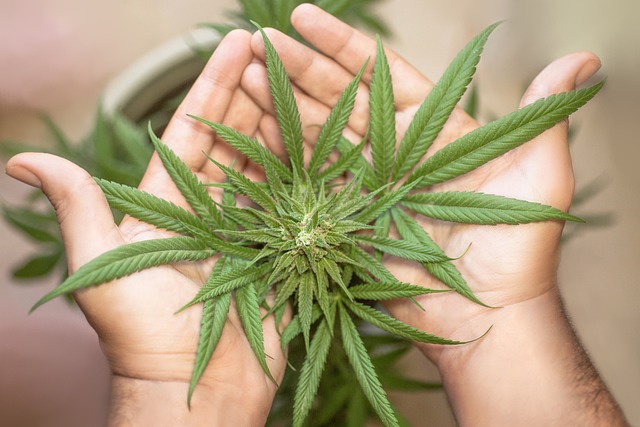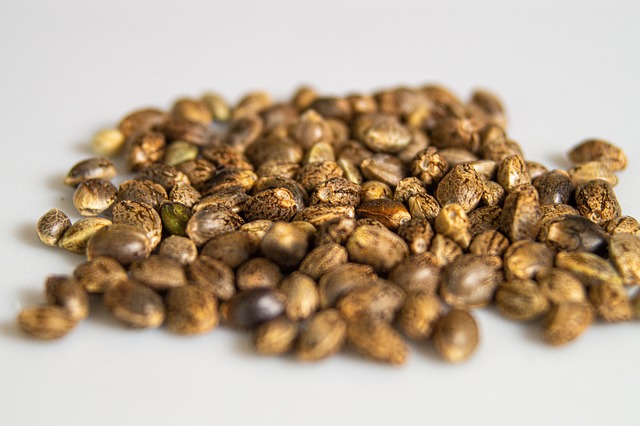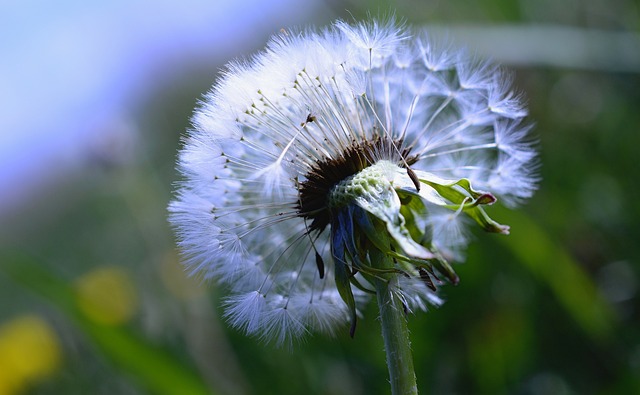THCA, the non-psychoactive precursor to THC, is fully legal in Nevada for both medical and recreational use, with specific regulations governing its possession, purchase, and consumption. While THCA itself doesn't induce psychoactive effects, it has been studied for potential health benefits such as anti-inflammatory, neuroprotective, and analgesic properties. Consumers in Nevada can legally consume THCA through flower products, with caution advised due to mild side effects like dry mouth and red eyes. It's important for users to purchase from licensed dispensaries to adhere to state regulations and ensure safety. In Nevada, THCA is legal but subject to the condition that it contains less than 0.3% Delta-9-THC on a dry weight basis. Users should be aware that heating THCA can convert it into THC, which may lead to unexpected psychoactive effects. As with any substance, individual responses to THCA vary, and one should start with small amounts to understand personal tolerance. Safety is paramount, so sourcing THCA flower from reputable dispensaries is crucial to avoid health risks related to contamination or mislabeling. By following these guidelines, Nevada residents can responsibly explore the benefits of THCA while minimizing potential adverse effects.
delta-9-tetrahydrocannabinolic acid (THCA) flower, a non-psychoactive cannabinoid precursor to THC, has garnered attention for its potential health benefits and side effects. With the evolving legal landscape in Nevada, consumers are increasingly curious about THCA’s properties and their implications. This article delves into the impact of THCA flower on health within the context of its legal status in Nevada, highlights its potential benefits and risks, and offers guidance on navigating its side effects for safe consumption. Understanding the nuances of THCA legality and effects is crucial for informed decision-making in this burgeoning market.
- Exploring the Impact of THCA Flower on Health: A Focus on Its Legal Status and Side Effects in Nevada
- Understanding THCA Flower: Potential Benefits and Risks for Consumers in a Legal Framework
- Navigating THCA Flower Side Effects: What Nevada Users Should Know for Safe Consumption
Exploring the Impact of THCA Flower on Health: A Focus on Its Legal Status and Side Effects in Nevada

THCA, or tetrahydrocannabinolic acid, is a non-psychoactive cannabinoid found in the Cannabis sativa plant, which is the scientific precursor to THC, the primary psychoactive component of cannabis. As legislation evolves, understanding the legal landscape regarding different cannabinoids becomes increasingly important. In Nevada, the legal status of THCA is a point of interest within the broader recreational and medical marijuana framework. The state has legalized both medical and recreational use of cannabis products, including those containing THCA. However, consumers must adhere to state regulations that govern possession, purchase, and consumption limits.
When it comes to health implications, research on THCA is ongoing, as its effects differ significantly from those of THC. Unlike THC, THCA does not induce psychoactive effects but is being studied for its potential therapeutic benefits, including anti-inflammatory, anti-nausea, and neuroprotective properties. While the side effects associated with THCA are generally mild, they can include dry mouth, red eyes, and occasional drowsiness. These are similar to those of THC but without the psychoactive component. Users in Nevada who opt for THCA flower products should be aware of these side effects and start with small doses to gauge their individual responses. It is also crucial to note that while THCA is legal in Nevada, its derivatives or products that convert THCA into THC may have different legal considerations. Therefore, consumers should always purchase from licensed dispensaries and adhere to Nevada’s regulations to ensure a safe and compliant experience with cannabis products.
Understanding THCA Flower: Potential Benefits and Risks for Consumers in a Legal Framework

Understanding THCA Flower: Potential Benefits and Risks for Consumers in a Legal Framework
THCA, or tetrahydrocannabinolic acid, is one of the major cannabinoids found in the cannabis plant. While it’s well-known that its decarboxylated form, THC (tetrahydrocannabinol), produces psychoactive effects, THCA itself is non-psychoactive and has been subject to recent research for its potential health benefits. In Nevada, where THCA flower is legal under state law, consumers have access to this cannabinoid in its raw form, which can be consumed through smoking or vaporizing. The legal status of THCA flower in Nevada allows for regulated exploration into its properties, providing a safe environment for individuals to experiment with and understand its effects.
For consumers, the potential benefits of THCA are promising. Preliminary studies suggest that THCA may offer therapeutic properties such as anti-inflammatory, neuroprotective, and analgesic effects without the psychoactive side effects associated with THC. However, it’s important for consumers to approach THCA flower with caution, as the cannabinoid can still interact with the body’s endocannabinoid system and may cause side effects like dry mouth, reduced blood pressure, or red eyes. Moreover, individual responses to THCA can vary, and those with pre-existing health conditions should consult healthcare professionals before use. The legal clarity in Nevada facilitates consumer access to THCA products while also emphasizing the need for responsible usage and adherence to dosage guidelines provided by experts in the field.
Navigating THCA Flower Side Effects: What Nevada Users Should Know for Safe Consumption

Navigating THCA flower side effects requires a comprehensive understanding of its legal status, potential effects, and safe consumption practices for Nevada users. THCA, or tetrahydrocannabinolic acid, is a non-psychoactive precursor to the well-known compound THC found in cannabis plants. As of the knowledge cutoff date, THCA is considered legal in Nevada, provided it contains less than 0.3% Delta-9-THC on a dry weight basis under the 2018 Farm Bill and the state’s regulations. Users should be aware that while THCA itself does not produce psychoactive effects, it can convert to THC post-decarboxylation, which may lead to unexpected intoxication if heated improperly.
When consuming THCA flower, Nevada users should be cognizant of potential side effects such as anxiety, paranoia, dizziness, and lethargy, particularly at higher doses. These can be exacerbated by individual sensitivity to cannabinoids, the potency of the product, and the user’s environment and mindset. It is crucial for users to start with low dosages and observe how their body reacts before increasing intake. Additionally, users should be knowledgeable about the source and quality of THCA flower, as it can vary significantly between producers. Ensuring that the product is sourced from reputable dispensaries or cultivators can mitigate risks associated with contaminants or mislabeling of cannabinoid concentrations. Adhering to these guidelines will aid Nevada users in enjoying the benefits of THCA flower while minimizing any adverse side effects.
Navigating the nuanced landscape of cannabinoids, particularly THCA flower, presents a unique set of considerations for consumers, especially within the legal confines of Nevada. This article has delved into the potential health impacts and benefits of THCA, highlighting its status as a non-intoxicating cannabinoid that is gaining attention for its therapeutic properties. While exploring these aspects, we’ve also underscored the importance of understanding the side effects associated with THCA flower consumption to ensure safe usage. As THCA legal in Nevada and other regions continues to evolve, consumers are encouraged to approach this compound with informed discretion. In light of the evidence presented, it’s clear that a balanced perspective, combining both the purported advantages and the potential adverse effects, is essential for anyone considering THCA flower as part of their health regimen.
